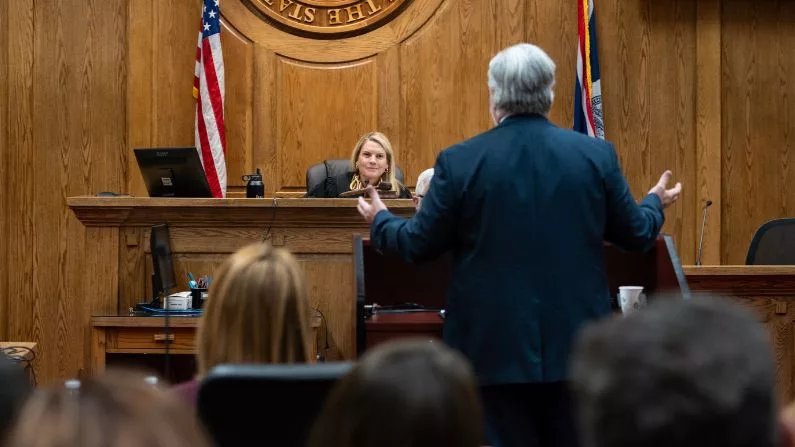The fate of abortion access in Wyoming may soon be up to the state’s supreme court.
A Teton County judge ruled this week that it’s time for the high court to decide if the state’s near-total and medical abortion bans are constitutional.
But, that’s if the court even decides to take up the case.
The Wyoming Supreme Court has previously denied similar requests to rule on the future of abortion, saying there wasn’t enough of a factual record and sending it back to the lower court.
But this time around may be different. University of Wyoming law professor Ken Chestek — also a Democratic state representative for Albany County — said the case is more developed now.
“The whole record, all the discovery, all the documents they exchanged, all the information about all the parties — that’s all part of a record that will be sent up to Cheyenne, to the supreme court for them to review and look at it,” Chestek said.
The case has been making it through Teton County’s ninth district court for over a year.
Last March, a group of abortion access advocates sued the state and other parties in Teton County court, arguing the abortion statutes — passed by the state legislature last year — are unconstitutional. The court stopped the bans from going into effect while the case goes through a lengthy battle.
Chestek said it’s widely accepted that the issue will end up in the hands of the supreme court no matter what.
“Whoever loses this lawsuit at the trial court will appeal to the supreme court,” Chestek said. “So, this is a way of getting it there more quickly, I think.”
Ninth Judicial District Court Judge Melissa Owens asked the high court on Monday to weigh in on 14 questions about if the state’s abortion bans violate Wyomingites’ rights to equal protection, due process, religious freedom and more.
But one question reigns over all.
“Does this law violate that right to health care? If not, then we’ll get to the other issues,” Chestek said, pointing out that Owens told the court to answer this question first.
It’s in Wyoming’s constitution that residents have the right to make their own health care decisions. The legislature can place “reasonable and necessary restrictions” on this, but the state is also required to protect health care access from “undue government infringement.”
This issue is widely considered to be the crux of the abortion case — which Chestek said is now a “pure question of law.”
A trial was originally scheduled for next month in Teton County, but both parties and Owens have now argued that’s not necessary.
“What’s at issue is, what do the words passed by the legislature mean as they’re compared to the Wyoming Constitution?” Chestek explained. “Trials are good at determining what the facts are, but when we already know what the facts are, you don’t really need a trial.”
Chestek said if the court takes the case up, a decision won’t come for another six months — at a minimum. Justices could also send it back to Teton County to make a decision first.
Parties and other stakeholders in the case didn’t respond to requests for comment before publication.
Abortion remains legal in Wyoming, and available at a clinic in Jackson, for now.






